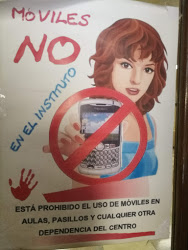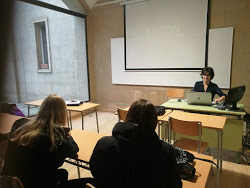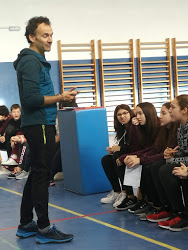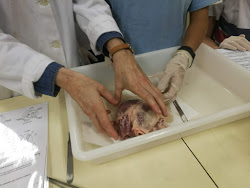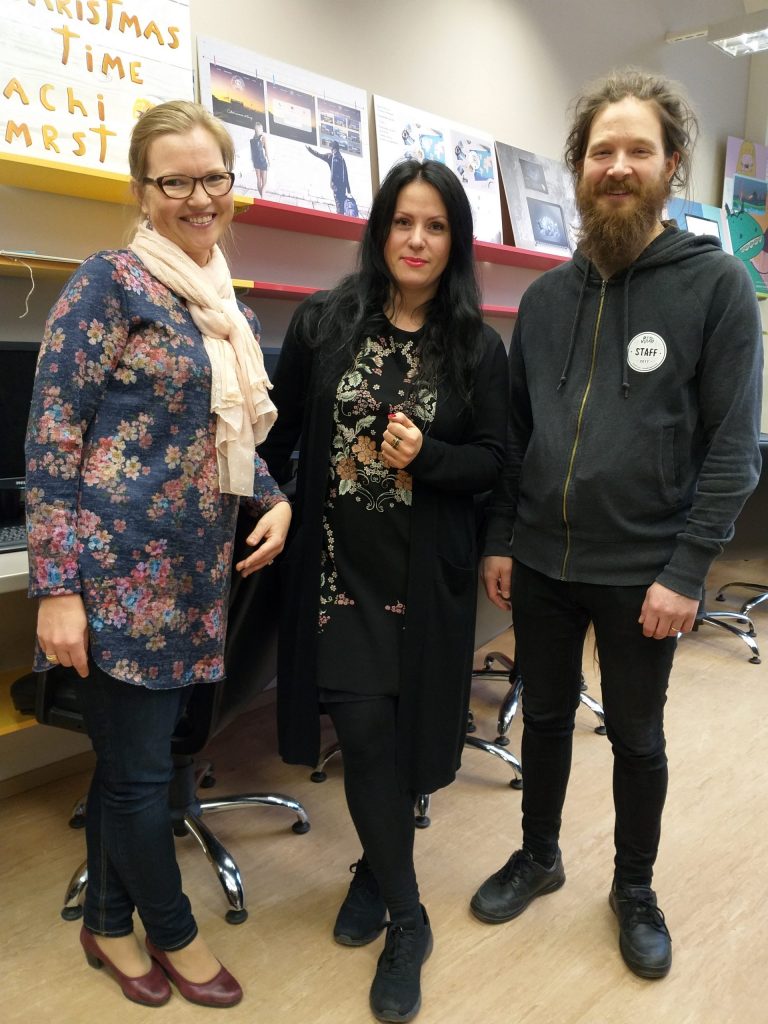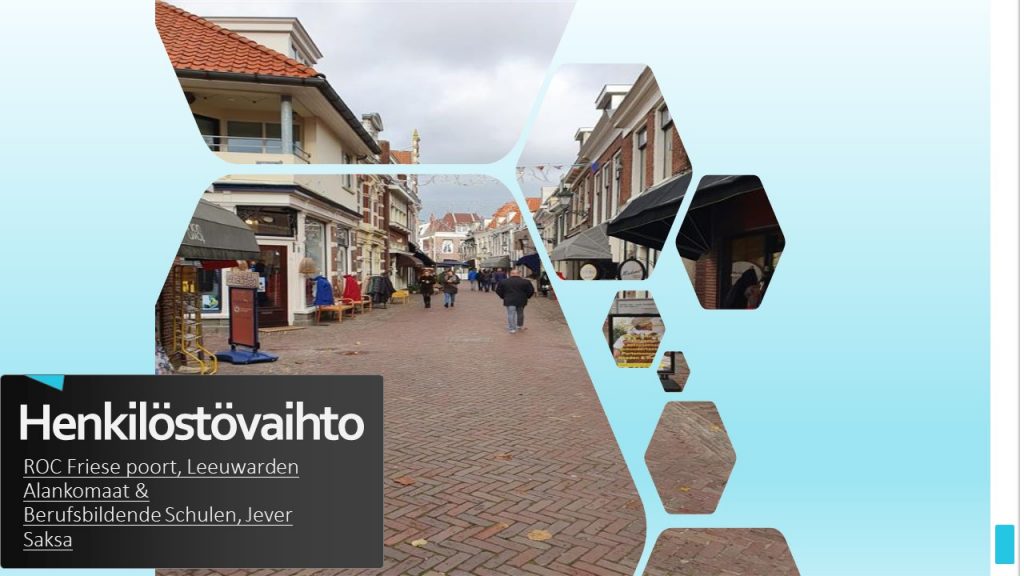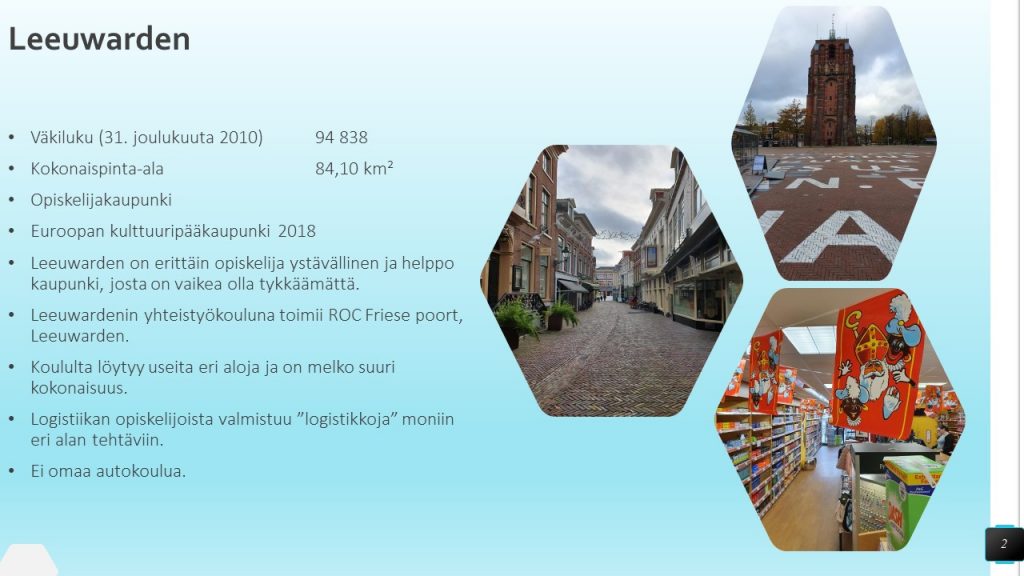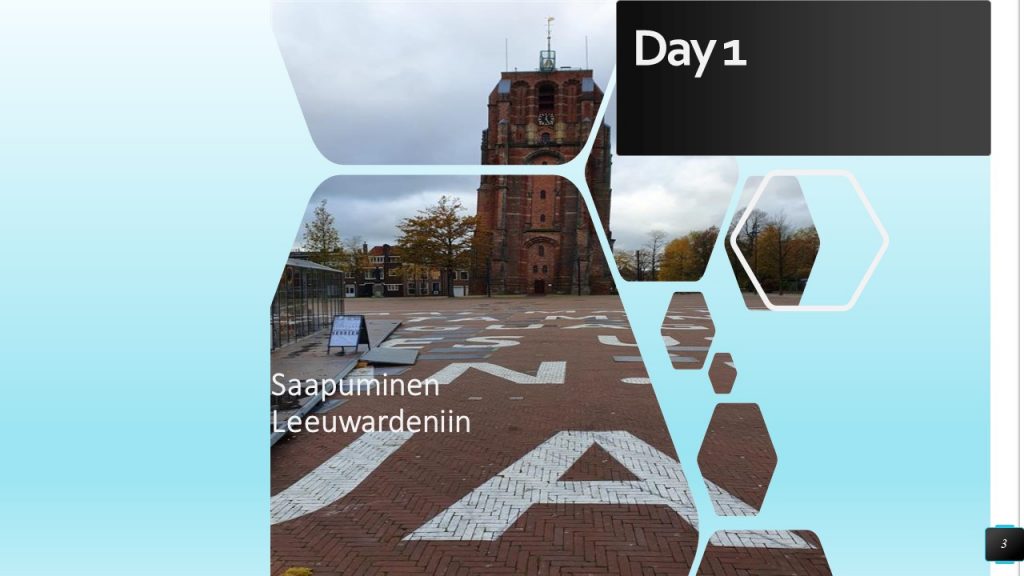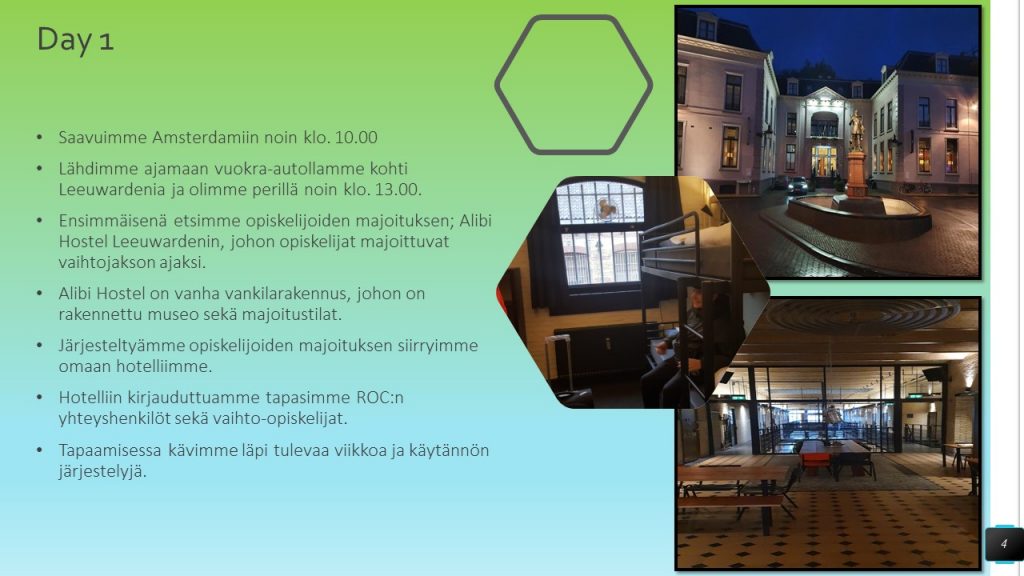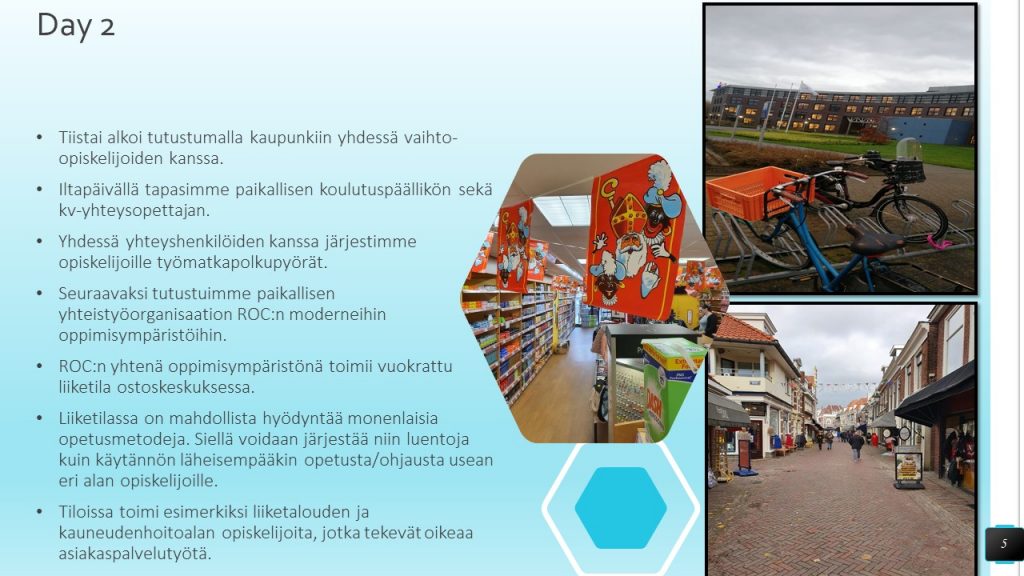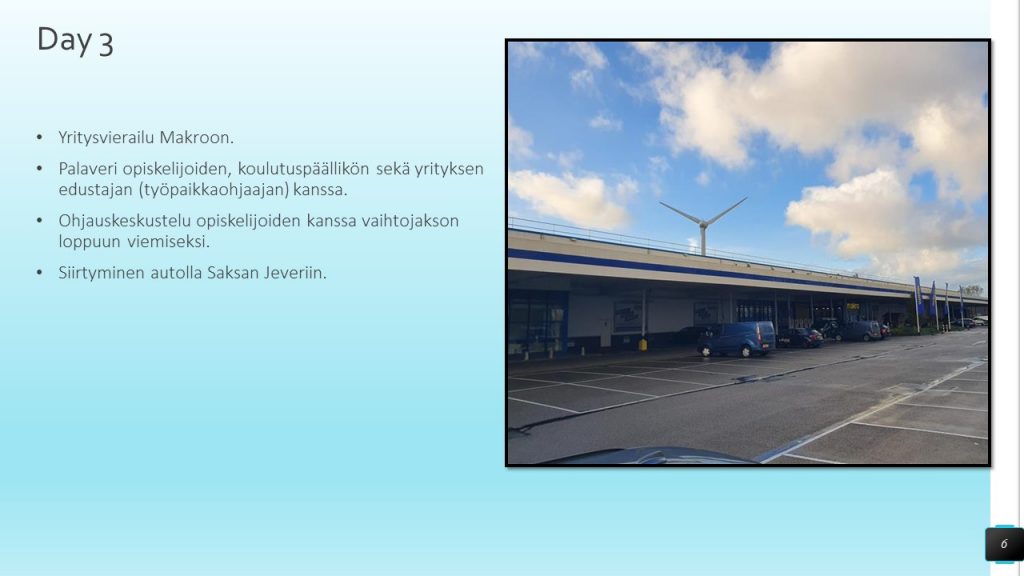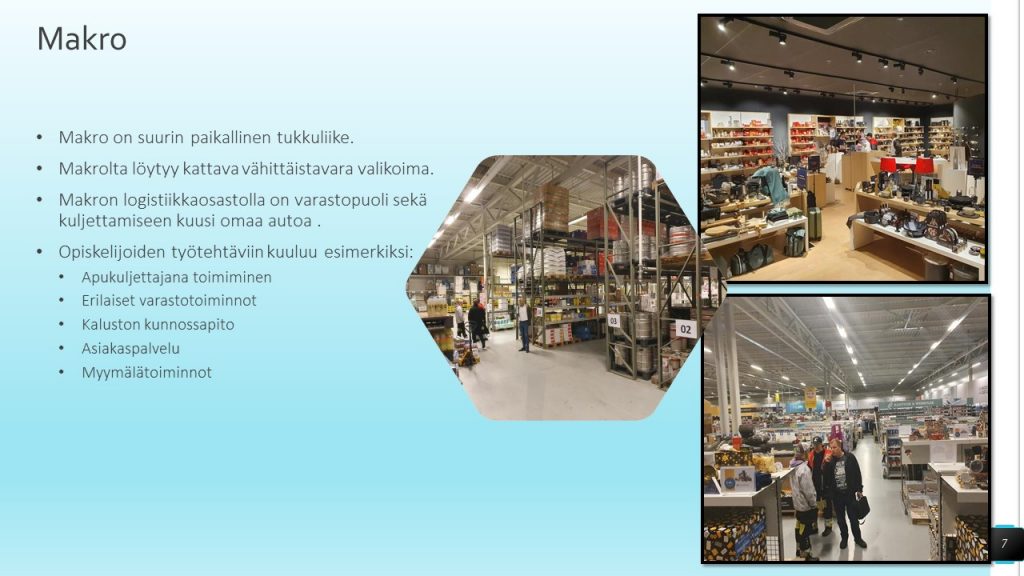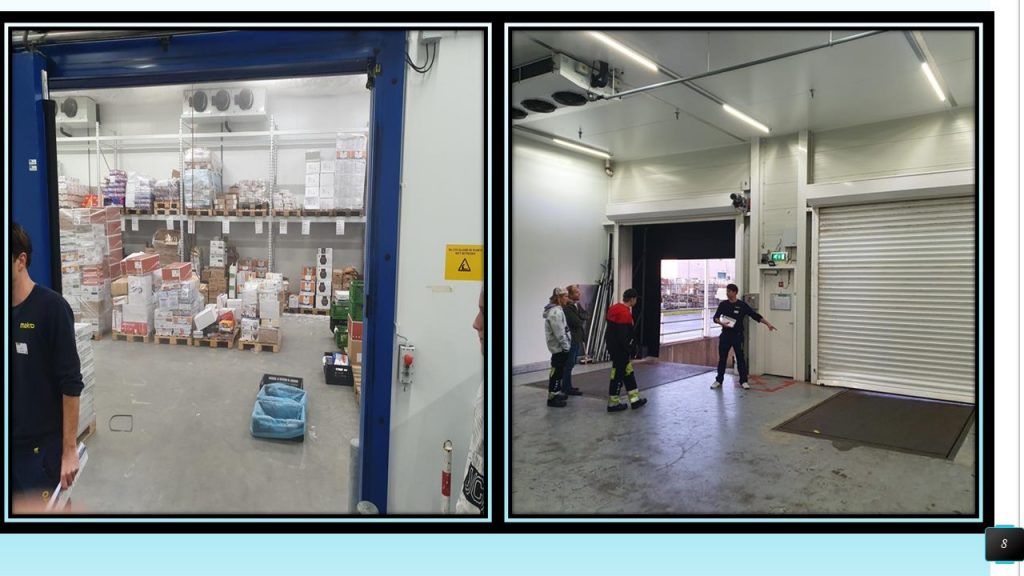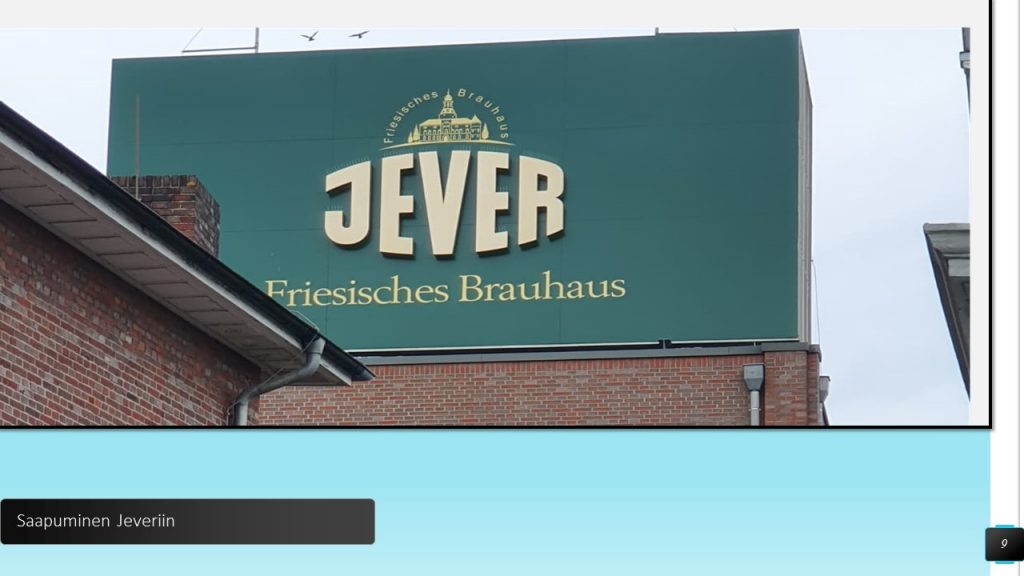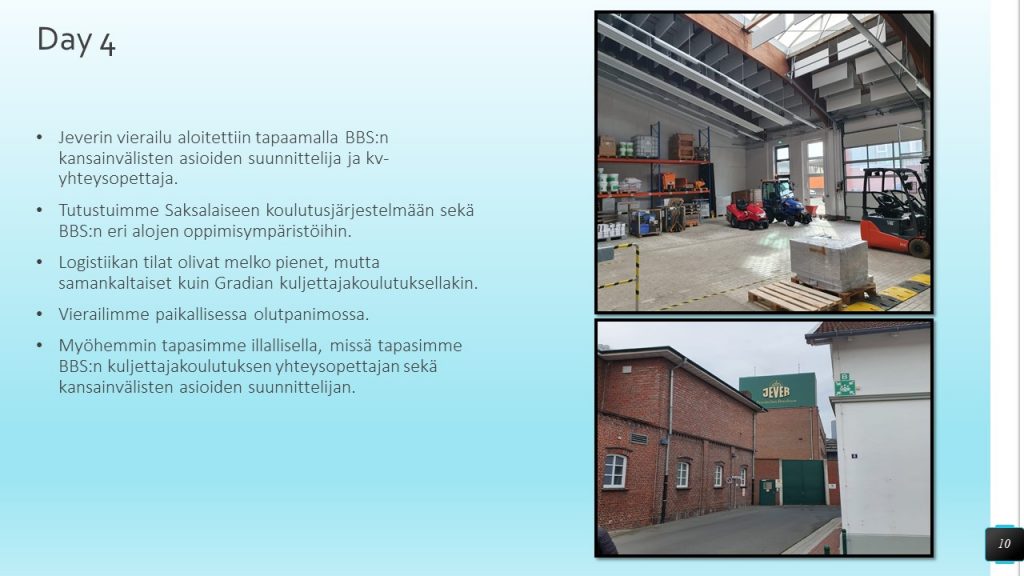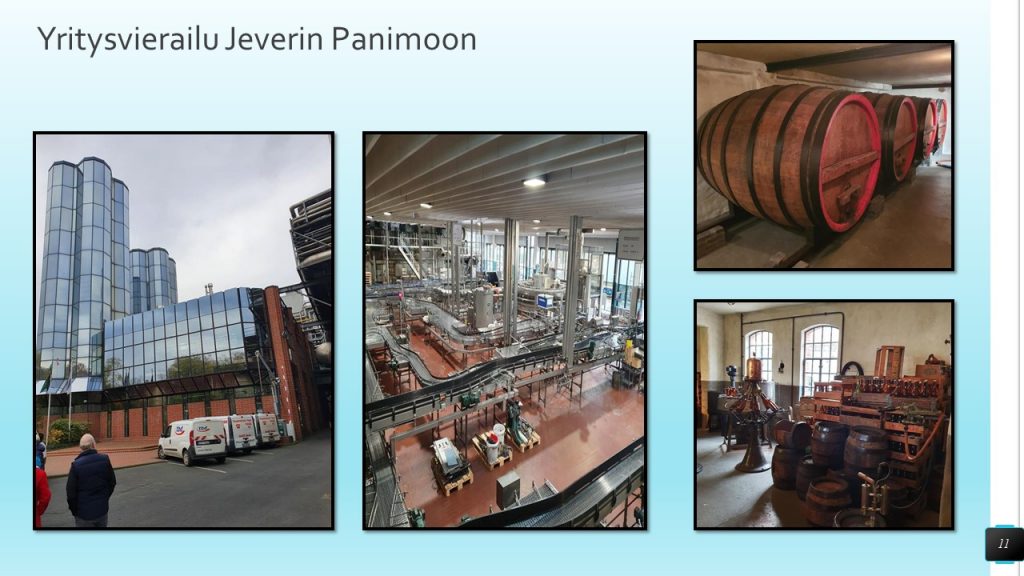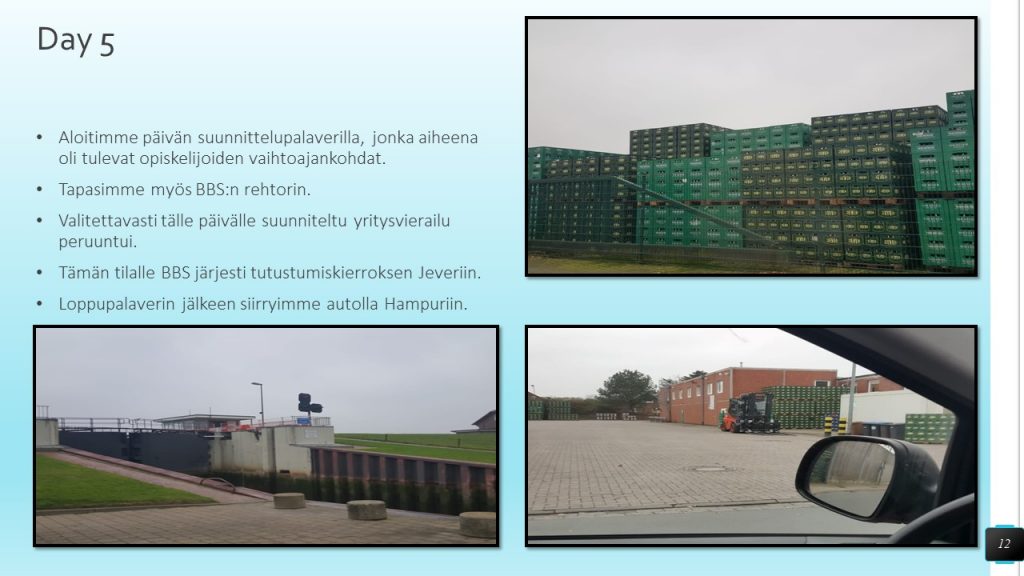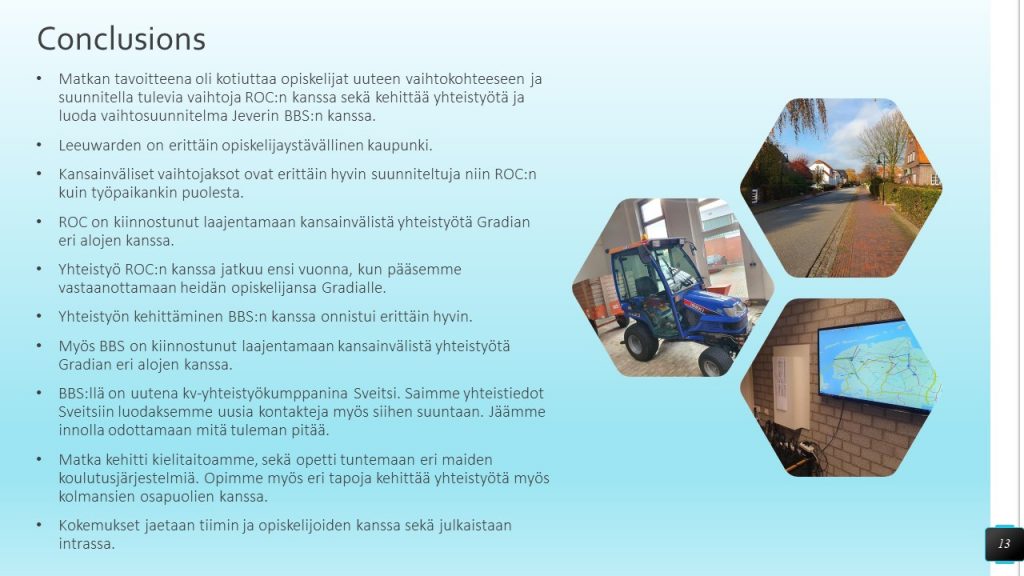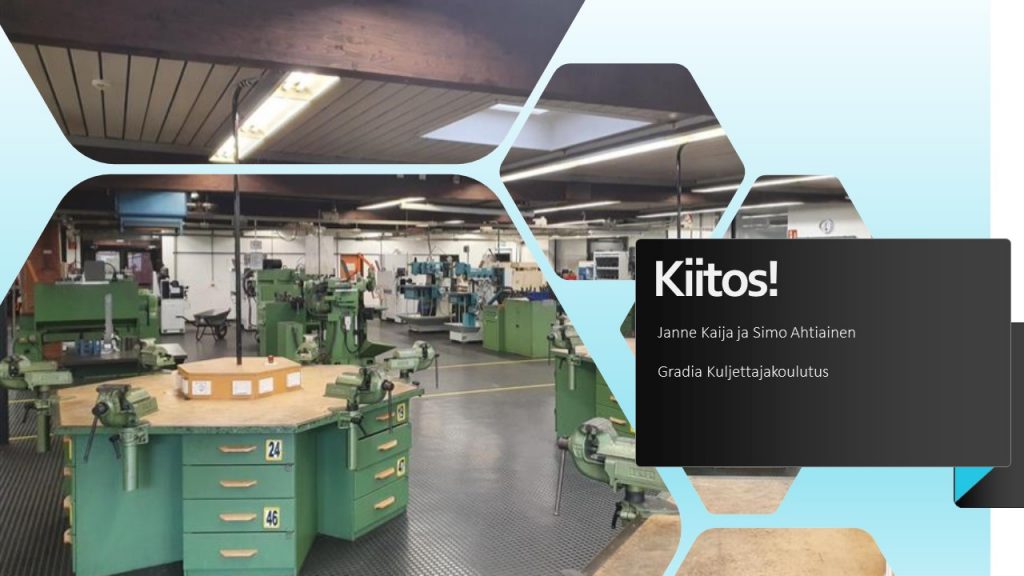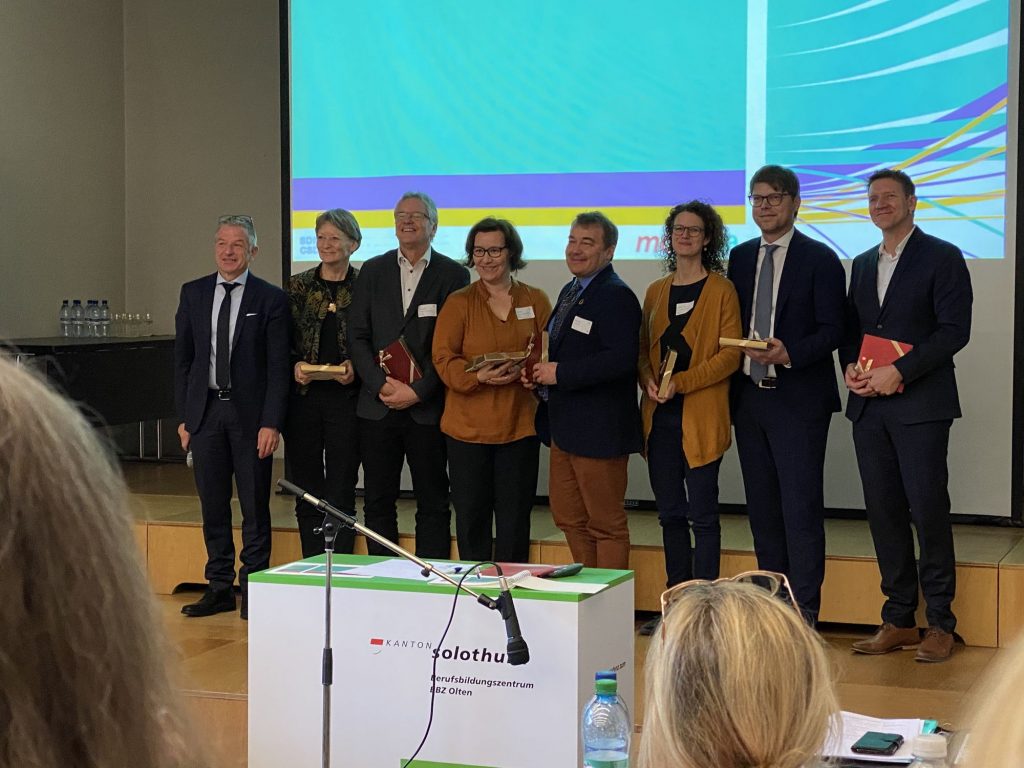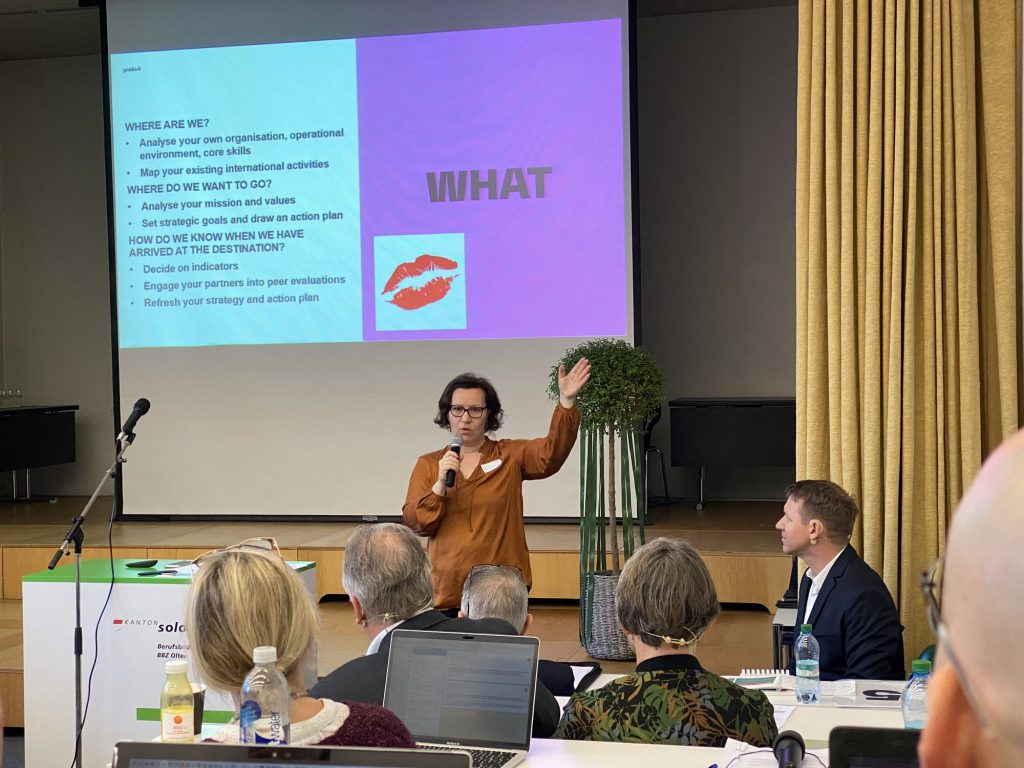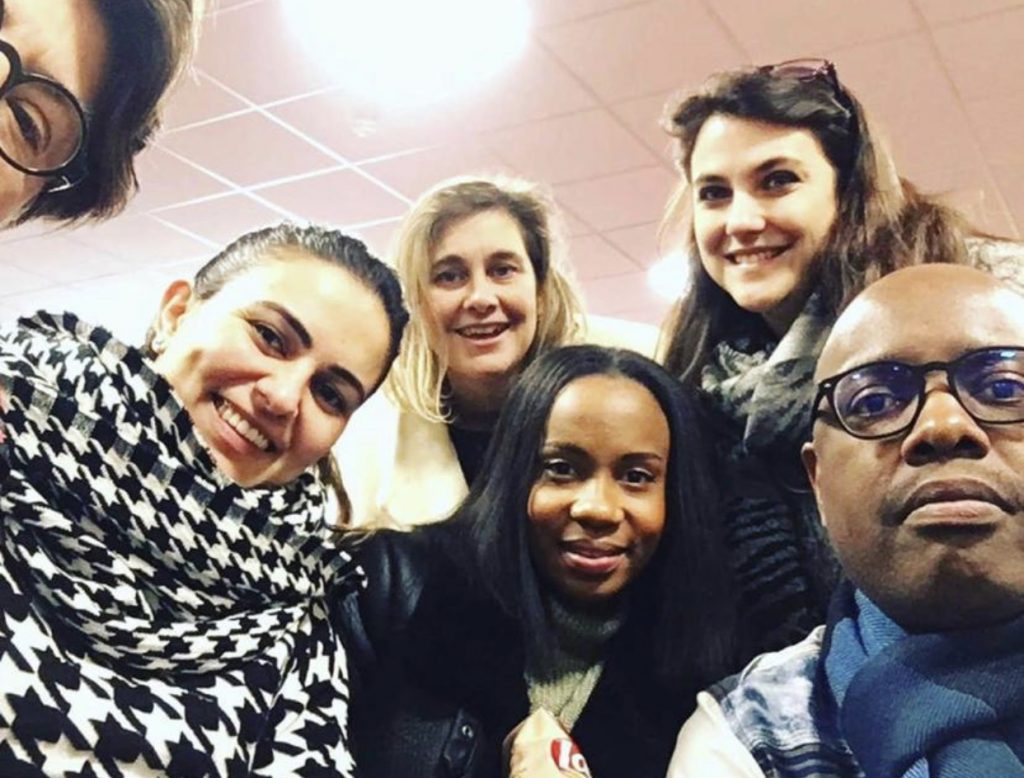Schildtin lukion opinto-ohjaaja Satu Syyrakki yhdisti henkilöstövaihdossa kielikurssin ja opiskelijaliikkuvuuden laadunvarmistuksen. Seuraavan kerran henkilöstövaihtoapurahat ovat haettavissa huhtikuussa 2020. Rahoittajan linjauksen mukaan kielikurssiapurahat ovat entiseen tapaan edellen vain yleissivistävän koulutuksen haettavissa. Muut apurahatyypit ovat koko Gradian henkilöstön haettavissa. Lisätietoa hakemisesta intrassa ja hakuinfoissa huhtikuun alussa.
ITSEÄNI HAASTAMASSA ZARAGOSASSA
Teksti ja kuvat: Satu Syyrakki
Helmikuisella viikon matkallani oli kaksi tarkoitusta: ensinnäkin saatoin kaksi opiskelijaa opiskelijavaihtoon IES Miguel Catalániin eli espanjalaiseen yhteistyökouluumme. Koulu on hyvin vanha Schildtin lukion yhteistyökoulu, ja olemme tehneet heidän kanssaan jo pitkään lyhyempiä ja pidempiä opiskelijavaihtoja. Nyt opiskelijoidemme Venlan ja Isabelin vaihtojakso on yhden jakson mittainen vaihto ja liittyy meidän Erasmus+ -hankkeeseemme EWF = Education without Frontiers. Olin päivät tyttöjen kanssa koululla, seurasin oppitunteja, tapasin vanhoja tuttuja ja uusia opettajia. He olivat myös järjestäneet minulle juttutuokion paikallisen opinto-ohjaajan kanssa, ja hänen kanssaan pääsimme vertailemaan opiskeluhuoltoa Suomessa ja Espanjassa. Eroja on kyllä enemmän kuin yhtäläisyyksiä – esimerkiksi Espanjan perhekeskeinen kulttuuri johtaa siihen, että ammatinvalinnan ohjauksessa nuoren perhe on aivan keskeisellä sijalla. Opinto-ohjauksella ei ole ollenkaan samanlaista merkitystä kuin meillä Suomessa.
Toinen tavoitteeni oli oppia espanjaa – tapani mukaan haastoin itseäni: kurssista muotoutui Español en quatro días… Eli Gradian täydennyskoulutusrahoituksella osallistuin viikon aikana yhteensä 20 tunnille (yksi tunti oli 60 minuuttia). Omista aikatauluistani johtuen kielikoulun kanssa sovittiin tunnit superintensiivisesti neljälle päivälle, koska ensimmäisen päivän halusin olla koulussa tyttöjen kanssa. Ranskan kielen taitoni on tosi vahva, ja ymmärrän espanjaa luettuna. Kävimmekin kurssilla tosi vaativia tekstejä ja toisaalta hyvin helppoja kielioppiasioita läpi. Kaikki tunnit olivat yksityistunteja, joten rehellisesti puhuen pääni kyllä kiehui perjantaina. Tuli myös mieleen, että pitäisi kävellä ennen kuin voi juosta, eli para correr primero caminar… Oman puheen tuottaminen alkoi jotenkin sujua loppuviikosta, kun olimme ehtineet käydä läpi ihan perusasioita.
Kuljin kouluun päivittäin Pilarin katedraalin ohi leijonien vartioiman sillan ylitse. Espanjalaiset opettajaystäväni olivat sitä mieltä, että silloin poistutaan kaupungista… olin tähän esikaupungissa sijaitsevaan kielikouluun kuitenkin tosi tyytyväinen. Opettajat olivat osaavia ja hinta ehkä noin 1/3 siitä, mitä vastaava kurssi keskikaupungilla olisi maksanut. Noûs Formaciones – kielikoulussa opetettiin paitsi espanjaa myös englantia, ja pienemmille lapsille heillä oli läksykerho/tukiopetusta.
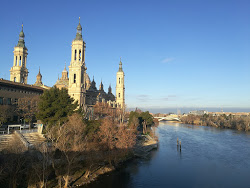
Matkani oli hyvin antoisa, eli tavoitteeni täyttyivät – ja ne siis olivat:
– lujittaa suhteita Espanjan koulun IES Miguel Catalánin kanssa; tutustua koulun ohjaussysteemiin
– edistää Erasmus+ EWF-projektia: otimme videoyhteyden slovakialaiseen koordinaattorikouluun, joka hostasi samaan aikaan viikon ajan yhden Schildtin lukion ja yhden IES MIguel Catalánin opettajan. Meiltä Schildtistä on tällä hetkellä myös neljä opiskelijaa jakson mittaisessa vaihdossa Slovakian koulussa. Videokonferenssissa sovimme jatkotoimenpiteistä projektissa.
– tukea tyttöjä koulun aloittamisessa ja Venlan jalkapallojoukkueen valinnassa: toinen vaihtareistamme on huippufutari, ja hän pääsee pelaamaan Zaragozassa myös vaihtojaksonsa aikana.
– oppia espanjan alkeet, ja vähän enemmänkin…
– kävellä noin 15 kilometriä päivässä
